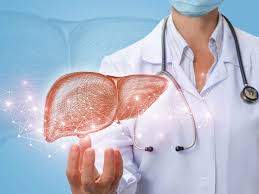- Phone: 011-41680215
- Mon-Fri (10am - 8pm)
- info@biswasheartandmindclinic.com

General practitioners, often known as family doctors or internists, form long-term relationships with their patients and ensure that they receive consistent care. The physicians and staff at Biswas Heart and Mind Clinic are focused on maintaining your trust and confidence. We are especially honored that our patients have referred so many of their friends and relatives to our practice. We look forward to making lasting relationships with every patient we meet.
Thank you for choosing Biswas Heart and Mind Clinic. Our practice is committed to providing you with a superior level of care in a friendly and personalized environment. Our practice is dedicated to providing medical health care for our patients, with pleasant surroundings in a state-of-the-art facility in south Delhi. We are very proud of the relationships that we have established with our patients.
Dedicated to Excellence
We hold ourselves to a high level of excellence in every aspect of our practice. This includes the care we provide, the equipment we use, the health and safety protocols we follow, and the incidental services we offer. Above all, our aim is to provide each of our patients with an optimal medicine experience.
Experienced Physicians
Our physician, Dr Anirban Biswas has completed extensive education and clinical training as well as specialized training in treating cases of medicine like asthma, allergy, arthritis, joint pain, obesity, diabetes, thyroid, sexual disorders, kidney and liver problems, etc. He is a certified professional who holds memberships and fellowships in many professional organizations. Driven to constantly improve their knowledge and the services they provide, our physicians frequently attend conferences and society meetings to learn about the latest advancements in the field and offer these techniques and technologies to our patients. In all of these ways and more, we are able to provide our patients with the highest quality of care.
The Importance of Patient Education
A key part of preventing a health care problem from progressing is being aware of how it can develop. We strongly believe that patient education is an important part of the services we provide. In addition to talking with our patients during their exams, we have a ready supply of patient education materials such as brochures and information sheets in our office. We encourage our patients to read about their condition and ask us questions about how to stay healthy.
Thank you for choosing us to be your medical health care providers! Please feel free to call us to make an appointment: 9313315383
Non-Alcoholic Fatty Liver Disease
Non-alcoholic fatty liver disease (NAFLD) is a common disorder in which an individual who consumes little or no alcohol accumulates fat around the liver. For most people who have this condition, there are no symptoms or complications. Nonetheless, because the liver is a vital organ, once NAFLD progresses causes liver dysfunction it becomes serious and potentially life-threatening. In fact, cirrhosis resulting from NAFLD is now one of the leading reasons for liver transplants in the United States.
Types of NAFLD
NAFLD is an umbrella term that refers to several forms of fatty liver disease that vary in severity. The three forms of non-alcoholic fatty liver disease are:
- NAFLD, or simple steatosis
- Non-alcoholic steatohepatitis, or NASH
- NASH-related cirrhosis
NASH is a more serious form of NAFLD, characterized by excessive fat accumulations that result in inflammation and the development of scar tissue in the liver. In NASH-related cirrhosis, the most dangerous form of NAFLD, the condition progresses to fibrosis, cirrhosis, and, potentially, liver failure.
Risk Factors for NAFLD
NAFLD, currently considered by many physicians as part of metabolic syndrome, has been linked to a wide range of diseases conditions, most especially obesity and insulin resistance. Poor diet, particularly a diet too high in fat, has also been linked to NAFLD. Other health disorders associated with NAFLD include:
- High cholesterol
- Sleep apnea
- Hypothyroidism
- Polycystic ovary syndrome
There also appears to be a genetic component to this condition.
Symptoms of NAFLD
Even more serious forms of NAFLD typically result in few symptoms. When symptoms do develop, they may include some of the following:
- Loss of appetite, nausea, weight loss
- Weakness, fatigue, mental confusion
- Abdominal pain, blackened stools
- Jaundice
- Itching
- Edema or ascites (swelling of legs or abdomen)
- Development of spider veins
In many, or even most, cases, NAFLD patients are asymptomatic and the disease is discovered incidentally through routine diagnostic tests.
Diagnosis of NAFLD
NAFLD may be suspected if a blood test shows elevated liver enzymes. To confirm this diagnosis, a series of tests are conducted that may include, further blood tests, imaging tests such as an ultrasound or an MRI or CT scan. A liver biopsy may be necessary to differentiate the mildest form of NAFLD from those involving inflammation or scarring.
Treatment of NAFLD
Treatment methods of mild NAFLD are also the methods for preventing the development of the condition. These include lifestyle changes such as:
- Eating a healthy diet
- Getting to a healthy weight
- Having an exercise routine
- Avoiding smoking and drinking alcohol
- Controlling related disorders like diabetes and high cholesterol
- Avoiding any unnecessary prescription medications
Even though NAFLD is not caused by excessive alcohol use, patients are advised to refrain from drinking alcoholic beverages which can exacerbate the condition. Where morbid obesity is a factor, patients may require bariatric surgery. Once liver inflammation or scarring is apparent, the disease may require liver transplantation.

